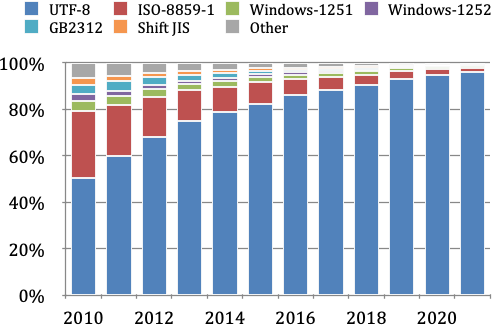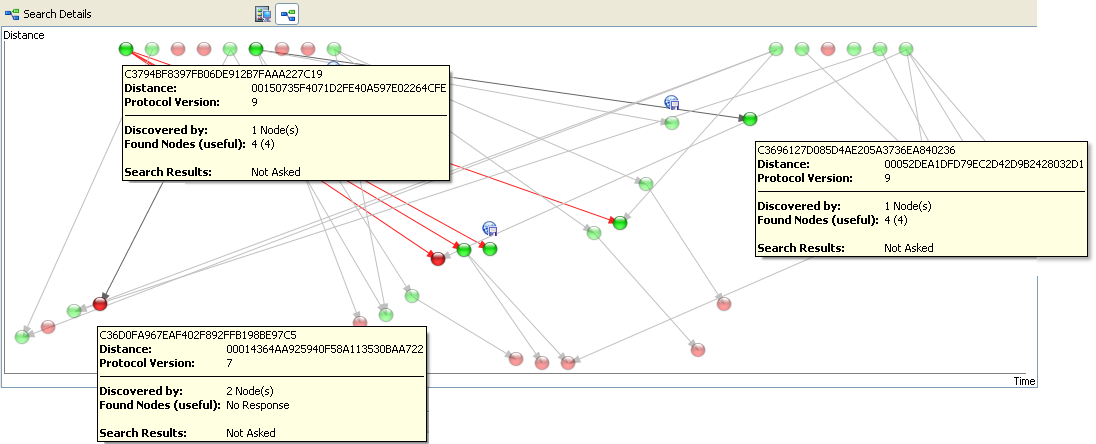|
PeerGuardian
PeerGuardian is a free and open source program developed by Phoenix Labs (software). It is capable of blocking incoming and outgoing connections based on IP blacklists. The aim of its use was to block peers on the same torrent download from any visibility of your own peer connection using IP lists. The system is also capable of blocking custom ranges, depending upon user preferences. The Windows version of this program has been discontinued in favor of other applications (Phoenix Labs encourage current PeerGuardian users to migrate to PeerBlock which is based on PeerGuardian 2). History Development on PeerGuardian started in late 2002, led by programmer Tim Leonard. The first public version was released in 2003, at a time when the music industry started to sue individual file sharing users (a change from its previous stance that it would not target consumers with copyright infringement lawsuits). Version 1 The original PeerGuardian (1.0) was programmed in Visual Basic an ... [...More Info...] [...Related Items...] OR: [Wikipedia] [Google] [Baidu] |
PeerBlock
PeerBlock is a free and open-source personal firewall that blocks packets coming from, or going to, a maintained list of black listed hosts. PeerBlock is the Windows successor to the software PeerGuardian (which is currently maintained only for Linux). It blocks incoming and outgoing connections to IP addresses that are included on blacklists (made available on the Internet), and to addresses specified by the user. PeerBlock mainly uses blacklists provided by iblocklist.com. Development PeerBlock 1.0 is based on the same code as PeerGuardian 2 RC1 Test3 Vista version. It adds support for 32- and 64-bit Windows Vista, Windows 7, and Windows 8. When the PeerGuardian project ended, its developer Phoenix Labs encouraged current PeerGuardian users to migrate to PeerBlock. PeerBlock is under development by a small team of developers led by Mark Bulas. Hosting, as well as the signed driver, is funded by donations from the public. Future donations are intended to contribute to futu ... [...More Info...] [...Related Items...] OR: [Wikipedia] [Google] [Baidu] |
Phoenix Labs (software)
Phoenix Labs (formerly Methlabs) was a software developing community founded by Tim Leonard and Ken McClelland and best known for PeerGuardian, an open-source software program optimized for use as a personal firewall on file sharing networks. History The group was originally organized to work on PeerGuardian, a program Leonard created in 2003 in response to the shutdown of the Audiogalaxy file sharing site. The name Methlabs came from Leonard's handle, 'method'. In late 2004, the group added Blocklist.org, a website designed to allow users to interactively manage and block the IP addresses of certain organisations and companies. Phoenix Labs was formed in September 2005 following a dispute between members of the Methlabs team. According to a Phoenix Labs press release, a "series of threats and incidents" forced most of the group out of the methlabs.org website. The press release attributed this action to a team member with responsibility for finances and server control. Based ... [...More Info...] [...Related Items...] OR: [Wikipedia] [Google] [Baidu] |
Pg2rc1vista
PG or P.G. may refer to: *Parental Guidance (PG), a content rating in motion picture content rating systems and television content rating systems *Paying Guest (PG), also called homestay, a type of accommodation Businesses and organisations * P.G. Cigars, a cigar brand named after Paul Garmirian * PG Tips, a British brand of tea * Bangkok Airways, a Thai regional airline, IATA airline designator PG * Procter & Gamble (P&G), an American multi-national consumer goods corporation * Left Party (France) (''Parti de gauche''), a French democratic socialist political party * Partido Galeguista (1931), a Galician nationalist political party in Galicia, Spain * Partido Galeguista (1978), a Galician nationalist political party in Galicia, Spain *Peoples Gazette, a Nigerian online newspaper * PlatinumGames, a Japanese video game developer * Porter-Gaud School, Charleston, South Carolina, U.S. People * PG, student in a postgraduate year after high school (secondary school) * P.G., Brazili ... [...More Info...] [...Related Items...] OR: [Wikipedia] [Google] [Baidu] |
Open Source License
An open-source license is a type of license for computer software and other products that allows the source code, blueprint or design to be used, modified and/or shared under defined terms and conditions. This allows end users and commercial companies to review and modify the source code, blueprint or design for their own customization, curiosity or troubleshooting needs. Open-source licensed software is mostly available free of charge, though this does not necessarily have to be the case. Licenses which only permit non-commercial redistribution or modification of the source code for personal use only are generally not considered as open-source licenses. However, open-source licenses may have some restrictions, particularly regarding the expression of respect to the origin of software, such as a requirement to preserve the name of the authors and a copyright statement within the code, or a requirement to redistribute the licensed software only under the same license (as in a copyl ... [...More Info...] [...Related Items...] OR: [Wikipedia] [Google] [Baidu] |
KTorrent
KTorrent is a BitTorrent client that is part of the KDE Gear. Features KTorrent is often received as a client intended to be feature rich. Features include: *Upload and download speed capping / throttling & scheduling *Internet searching with torrent search engines using KHTML part. *Support for UDP trackers. *IP address blocklist plugin *Port forwarding with UPnP (Universal Plug and Play) * Protocol encryption * DHT (mainline version), and support for trackerless torrents *μTorrent peer exchange (PEX) support *File Prioritization *Ability to import partially downloaded files *Directory scanner to automatically watch directories for new torrents *Manual addition of trackers to torrents *RSS feed support *Web interface plugin with default port number 8080 *IPv6 support *SOCKS v4 and v5 support * μTP support *Generation and parsing of magnet links *UDP tracker scraping *Enhanced usability of the queue manager * Super-seeding support *Streaming of video while downloading See al ... [...More Info...] [...Related Items...] OR: [Wikipedia] [Google] [Baidu] |
Vuze
Vuze (previously Azureus) is a BitTorrent client used to transfer files via the BitTorrent protocol. Vuze is written in Java, and uses the Azureus Engine. In addition to downloading data linked to .torrent files, Azureus allows users to view, publish and share original DVD and HD quality video content. Content is presented through channels and categories containing TV shows, music videos, movies, video games, series and others. Additionally, if users prefer to publish their original content, they may earn money from it. Azureus was first released in June 2003 at SourceForge.net, mostly to experiment with the Standard Widget Toolkit from Eclipse. It later became one of the most popular BitTorrent clients. The Azureus software was released under the GNU General Public License, and remains as a free software application. It was among the most popular BitTorrent clients. However, the Vuze software added in more recent versions is proprietary and users are required to accept these m ... [...More Info...] [...Related Items...] OR: [Wikipedia] [Google] [Baidu] |
UTF-8
UTF-8 is a variable-width encoding, variable-length character encoding used for electronic communication. Defined by the Unicode Standard, the name is derived from ''Unicode'' (or ''Universal Coded Character Set'') ''Transformation Format 8-bit''. UTF-8 is capable of encoding all 1,112,064 valid character code points in Unicode using one to four one-byte (8-bit) code units. Code points with lower numerical values, which tend to occur more frequently, are encoded using fewer bytes. It was designed for backward compatibility with ASCII: the first 128 characters of Unicode, which correspond one-to-one with ASCII, are encoded using a single byte with the same binary value as ASCII, so that valid ASCII text is valid UTF-8-encoded Unicode as well. UTF-8 was designed as a superior alternative to UTF-1, a proposed variable-length encoding with partial ASCII compatibility which lacked some features including self-synchronizing code, self-synchronization and fully ASCII-compatible handling ... [...More Info...] [...Related Items...] OR: [Wikipedia] [Google] [Baidu] |
EMule
eMule is a free peer-to-peer file sharing application for Microsoft Windows. Started in May 2002 as an alternative to eDonkey2000, eMule now connects to both the eDonkey network and the Kad network. The distinguishing features of eMule are the direct exchange of sources between client nodes, fast recovery of corrupted downloads, and the use of a credit system to reward frequent uploaders. Furthermore, eMule transmits data in zlib-compressed form to save bandwidth. eMule is coded in C++ using the Microsoft Foundation Classes. Since July 2002 eMule has been free software, released under the GNU General Public License; its popularity has led to eMule's codebase being used as the basis of cross-platform clients aMule, JMule, xMule, along with the release of many eMule ''mods'' (modifications of the original eMule) on the Internet. As of August 2017, it is the fourth most downloaded project on SourceForge, with over 685 million downloads. Development was later restarted by the ... [...More Info...] [...Related Items...] OR: [Wikipedia] [Google] [Baidu] |
Gzip
gzip is a file format and a software application used for file compression and decompression. The program was created by Jean-loup Gailly and Mark Adler as a free software replacement for the compress program used in early Unix systems, and intended for use by GNU (from where the "g" of gzip is derived). Version 0.1 was first publicly released on 31 October 1992, and version 1.0 followed in February 1993. The decompression of the ''gzip'' format can be implemented as a streaming algorithm, an important feature for Web protocols, data interchange and ETL (in standard pipes) applications. File format gzip is based on the DEFLATE algorithm, which is a combination of LZ77 and Huffman coding. DEFLATE was intended as a replacement for LZW and other patent-encumbered data compression algorithms which, at the time, limited the usability of compress and other popular archivers. "gzip" is often also used to refer to the gzip file format, which is: * a 10-byte header, contai ... [...More Info...] [...Related Items...] OR: [Wikipedia] [Google] [Baidu] |
Release Candidate
A software release life cycle is the sum of the stages of development and maturity for a piece of computer software ranging from its initial development to its eventual release, and including updated versions of the released version to help improve the software or fix software bugs still present in the software. There are several models for such a life cycle. A common method is that suggested by Microsoft, which divides software development into five phases: Pre-alpha, Alpha, Beta, Release candidate, and Stable. Pre-alpha refers to all activities performed during the software project before formal testing. The alpha phase generally begins when the software is feature complete but likely to contain several known or unknown bugs. The beta phase generally begins when the software is deemed feature complete, yet likely to contain several known or unknown bugs. Software in the production phase will generally have many more bugs in it than completed software, as well as speed/performan ... [...More Info...] [...Related Items...] OR: [Wikipedia] [Google] [Baidu] |
IPv6
Internet Protocol version 6 (IPv6) is the most recent version of the Internet Protocol (IP), the communication protocol, communications protocol that provides an identification and location system for computers on networks and routes traffic across the Internet. IPv6 was developed by the Internet Engineering Task Force (IETF) to deal with the long-anticipated problem of IPv4 address exhaustion, and is intended to replace IPv4. In December 1998, IPv6 became a Draft Standard for the IETF, which subsequently ratified it as an Internet Standard on 14 July 2017. Devices on the Internet are assigned a unique IP address for identification and location definition. With the rapid growth of the Internet after commercialization in the 1990s, it became evident that far more addresses would be needed to connect devices than the IPv4 address space had available. By 1998, the IETF had formalized the successor protocol. IPv6 uses 128-bit addresses, theoretically allowing 2128, or approximatel ... [...More Info...] [...Related Items...] OR: [Wikipedia] [Google] [Baidu] |



